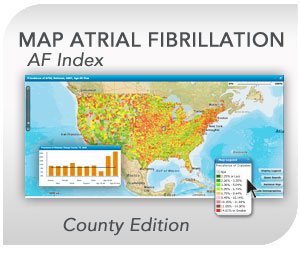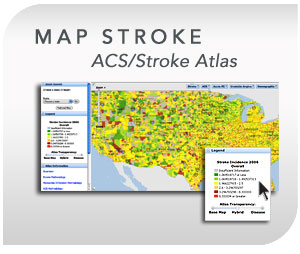Stroke Reports
Thursday, June 27th, 2013

JACC: 7/2.13 Objectives The purpose of this study was to evaluate the relationship between patent foramen ovale (PFO), ischemic stroke, and subclinical cerebrovascular disease in the general population. Background PFO is found more frequently in stroke patients than in stroke-free controls. However, the PFO-related stroke risk in the general population is not well established, and the relationship between […]
Stroke Reports
Thursday, June 27th, 2013

Neurology: 6/26/13 Objective: To explore whether traumatic brain injury (TBI) may be a risk factor for subsequent ischemic stroke. Methods: Patients with any emergency department visit or hospitalization for TBI (exposed group) or non-TBI trauma (control) based on statewide emergency department and inpatient databases in California from 2005 to 2009 were included in a retrospective cohort. TBI was […]
Stroke Reports
Thursday, June 27th, 2013

PLOS: 6/25/13 Patients with chronic disease may experience complicated management plans requiring significant personal investment. This has been termed ‘treatment burden’ and has been associated with unfavourable outcomes. The aim of this systematic review is to examine the qualitative literature on treatment burden in stroke from the patient perspective. Read more
Stroke Reports
Thursday, June 27th, 2013

AHA: June 6, 2013 Effects on Ischemic and Hemorrhagic Strokes and Bleeding in Asians and Non-Asians With Atrial Fibrillation Background and Purpose—Intracranial hemorrhage rates are higher in Asians than non-Asians, especially in patients receiving warfarin. This randomized evaluation of long-term anticoagulation therapy subgroup analysis assessed dabigatran etexilate (DE) and warfarin effects on stroke and […]
Stroke Reports
Thursday, June 27th, 2013

AHA: June 4, 2013 Background and Purpose—Because acute ischemic strokes (ISs) are mainly hospitalized, hospital discharge data could be used to routinely follow their incidence management. We aimed to assess sensitivity and positive predictive value of the French hospital discharge database (HDD) to identify patients with acute IS using a prospective and exhaustive cohort (AVC69) […]
Stroke Reports
Friday, June 21st, 2013

JAMA: June 19, 2013 Importance Randomized clinical trials suggest the benefit of intravenous tissue-type plasminogen activator (tPA) in acute ischemic stroke is time dependent. However, modest sample sizes have limited characterization of the extent to which onset to treatment (OTT) time influences outcome; and the generalizability of findings to clinical practice is uncertain. Objective To […]
Stroke Reports
Friday, June 21st, 2013

BMC Health Services Research: June 18, 2013 Background Tools to support clinical or patient decision-making in the treatment/management of a health condition are used in a range of clinical settings for numerous preference-sensitive healthcare decisions. Their impact in clinical practice is largely dependent on their quality across a range of domains. We critically analysed currently […]
Stroke Reports
Friday, June 21st, 2013

STROKEAHA: June 18, 2013 Background and Purpose—An accurate prognosis is useful for patients, family, and service providers after acute stroke. Methods—We validated the Stroke subtype, Oxfordshire Community Stroke Project Classification, Age, and prestroke Rankin stroke score in predicting inpatient and 7-day mortality using data from 8 National Health Service hospital trusts in the Anglia Stroke and […]
Stroke Reports
Friday, June 21st, 2013

STROKEAHA: June 18, 2013 Background and Purpose—Previous clinical studies suggested benefit for poststroke recovery when MLC601 was administered between 2 weeks and 6 months of stroke onset. The Chinese Medicine Neuroaid Efficacy on Stroke recovery (CHIMES) study tested the hypothesis that MLC601 is superior to placebo in acute, moderately severe ischemic stroke within a 72-hour time […]
Stroke Reports
Friday, June 21st, 2013

STROKEAHA. June 18, 2013 Background and Purpose—Previous economic studies outside Australia have demonstrated that patients treated with tissue-type plasminogen activator (tPA) within 4.5 hours of stroke onset have lower healthcare costs than those not. We aim to perform cost-effectiveness analysis of intravenous tPA in an Australian setting. Methods—Data on clinical outcomes and costs were derived […]




































